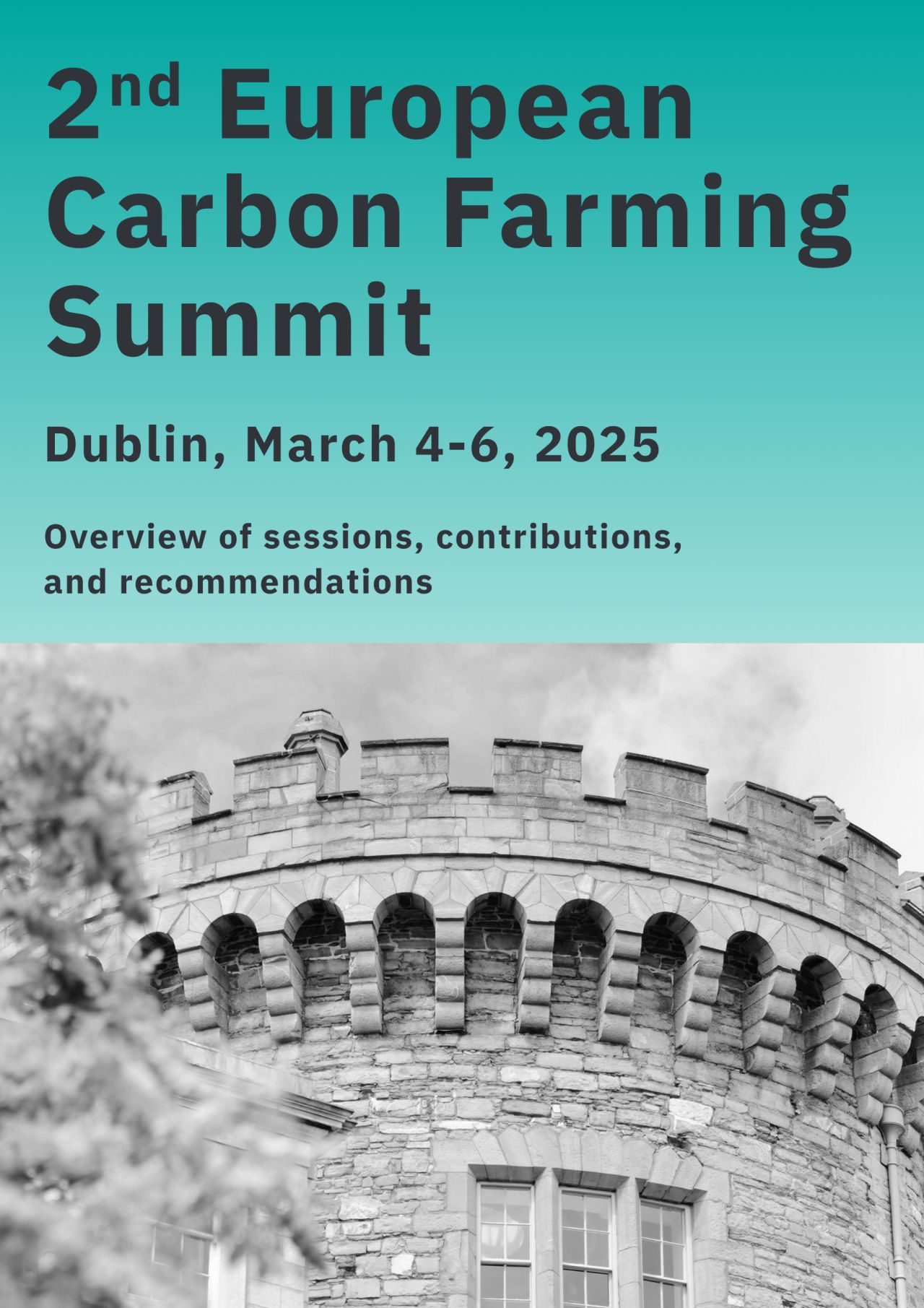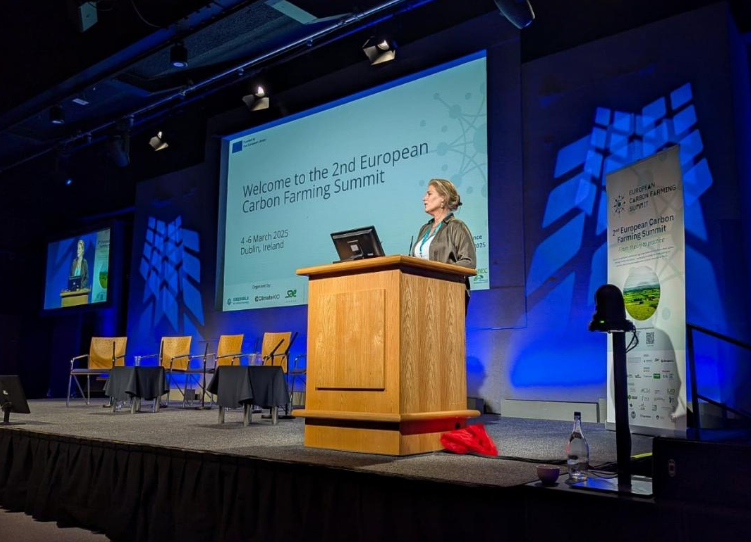Shaping the future of Carbon Farming

The 2nd European Carbon Farming Summit took place from 4–6 March 2025, at the historic Dublin Castle in Ireland. Organised by EU-funded project Credible in partnership with the Government of Ireland's Department of Agriculture, Food and the Marine. The summit brought together over 1,000 participants, including farmers, foresters, policymakers, researchers and businesses, to shape the future of Carbon Farming across Europe.
Following the success of the inaugural summit in Valencia, The 2nd European Carbon Farming Summit placed farmers and land managers at the very heart of the conversation. Rather than being passive recipients of policy or research, they were invited to co-lead sessions, share experiences, and bring real challenges and solutions to the table. This shift made it clear: the future of Carbon Farming depends on those who work the land every day.
As a multi-stakeholder event, the summit was designed around co-creation and dialogue. An open call for sessions and contributions allowed participants to shape the agenda, which featured five plenaries and over 40 breakout discussions covering topics such as monitoring, reporting, and verification (MRV), financing, policy alignment, landowner engagement, and biodiversity.
Hosted in Ireland, a country taking bold steps towards regenerative agriculture, the summit showcased the development of a national Carbon Farming framework. This approach goes beyond carbon sequestration, linking climate action with broader environmental and social benefits. The Irish case served as inspiration for other European regions, demonstrating how local practice, national strategy, and EU policy can be aligned.

Key themes and research needs
The discussions highlighted several priorities for the future:- Farmer-centred innovation systems that make peer-to-peer learning and practical knowledge exchange a cornerstone.
- Multi-benefit metrics and MRV methodologies that are adaptable to local conditions, while maintaining scientific rigour.
- Governance models that balance flexibility with integrity.
- Inclusive, modular approaches to schemes and incentives, ensuring they work across diverse geographies and farm types.
There was also a strong call for platforms that connect initiatives, share success stories, and avoid duplication.
Policy coherence matters
Participants underlined the importance of aligning the new Carbon Removals and Carbon Farming (CRCF) Regulation with other EU frameworks, from the Common Agricultural Policy to strategies on biodiversity, climate, and soil. Long-term investment, multi-benefit schemes, and systemic approaches were seen as essential, integrating farming not only into food transitions but also into landscape-level strategies such as forestry, rewilding, and bioeconomy initiatives.
A systemic and inclusive path forward
The Summit demonstrated how Europe's Carbon Farming transition should be shaped: inclusively, systemically, and in true partnership with farmers. Scientists, policymakers, and practitioners came together in dialogue, building a foundation that will guide Europe's path as the CRCF regulation and soil strategies are rolled out.
The outcomes of the summit directly feed into Project Credible's final year of work, helping to shape a durable roadmap beyond the project.
The full report, edited in collaboration with Climate-KIC, can be read and download here, and includes:
- Summaries from the five Plenary sessions, with contributions from leading voices.
- A detailed overview of the 40+ Parallel sessions, with recommendations for policymakers, researchers, companies, and landowners.
- The 40+ posters presented at the Summit.
You can also watch the Plenary sessions on Project Credible's YouTube channel.
